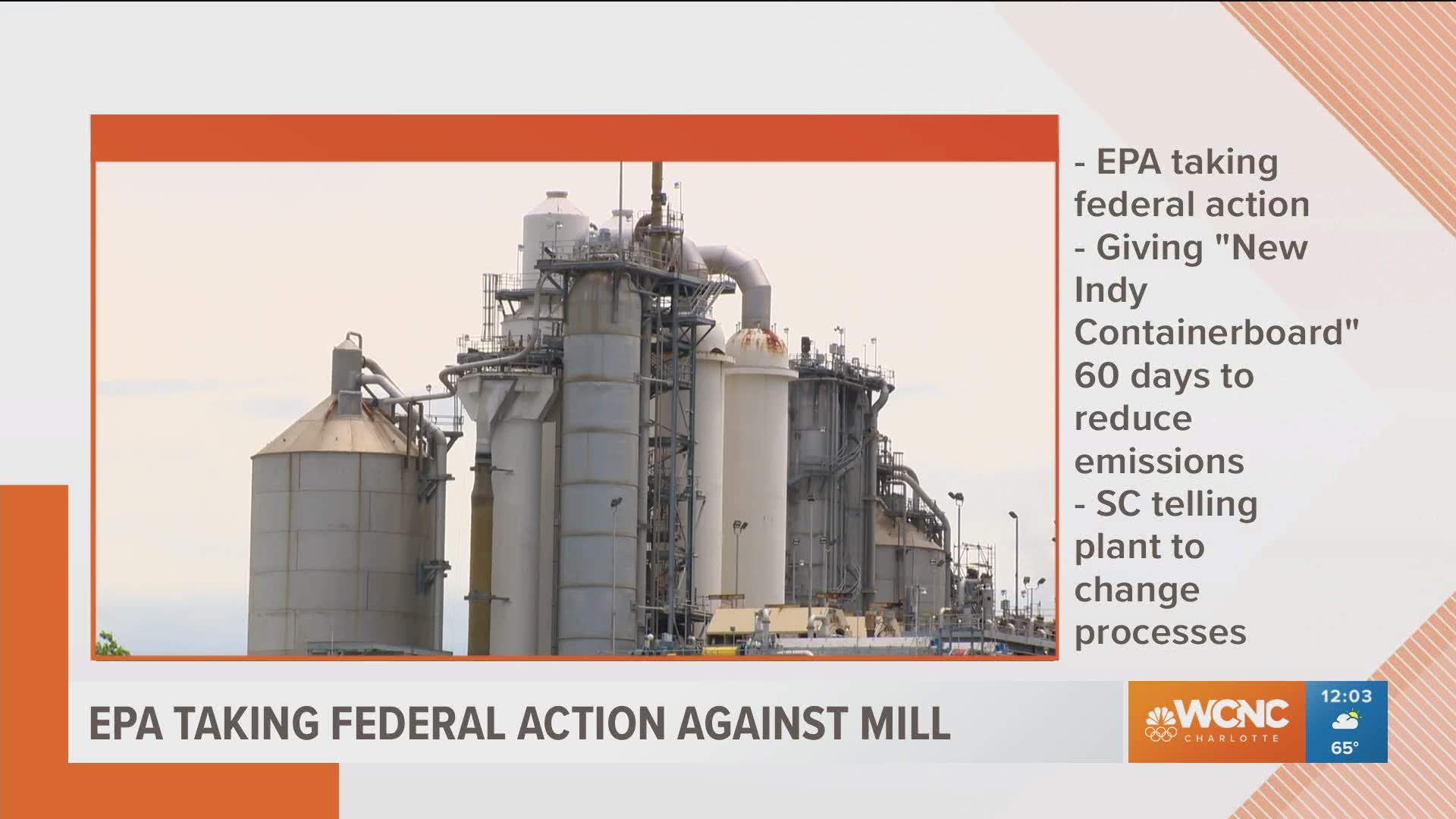COLUMBIA, S.C. — South Carolina state health leaders say the investigation into the New Indy Containerboard paper mill in Catawba has now resulted in federal-level action, which was later confirmed in a news release.
The members of the Department of Health and Environmental Control's board said during a meeting late Thursday morning that the federal Environmental Protection Agency had filed orders against the parent company of the plant. The investigation into New Indy wasn't originally on the agenda but was brought up nonetheless. Dr. Edward Simmer, the director of DHEC, said hydrogen sulfate emissions from the Catawba plant have not only caused foul odors to spread in the area but have also caused what he described as physical harm to residents.
“I think we have their attention. Working with us remains to be seen," said Simmer. He also noted New Indy has 15 days to respond to their own orders and to potentially appeal.
The update about the EPA's federal order came from Myra Reece, the director of environmental affairs for DHEC. She said the orders were issued within the 11 a.m. hour. This development came a day after DHEC made an announcement hinting the EPA was considering its own federal action against the mill. The EPA is empowered to do this through the Clean Air Act, and Reece noted Wednesday the federal agency used a specialized air monitoring vehicle to confirm high levels of hydrogen sulfide were coming straight from the mill.
Shortly after 12:30 p.m. Thursday, the EPA sent out a news release confirming they issued an emergency order demanding New Indy reduce the hydrogen sulfide emissions at the Catawba mill. In their release, the EPA says they also demanded the company perform its own air monitoring around the greater Rock Hill area in response to requests from state, local and tribal agencies.
“The steps taken by EPA today are necessary to address levels of hydrogen sulfide that have impacted residents along the North Carolina and South Carolina border, and Catawba Indian Nation (CIN),” said EPA Acting Region 4 Administrator John Blevins. “The joint efforts of CIN, the South Carolina Department of Health and Environmental Control (SC DHEC), the North Carolina Department of Environmental Quality (NCDEQ), and the Mecklenburg County Air Quality (MCAQ) emphasize the agencies’ full commitment to restoring the area’s air quality."
The company is now required to immediately begin taking those steps to reduce chemical emissions upon receipt of the EPA order. Three monitors along the fence line will need to be installed to ensure that the mill is meeting newer, more restrictive requirements. New Indy now has to submit a draft and final plan to meet the limits within eight days and comply with the approved plan within five days of the EPA's approval. The company is also required to alert the EPA of eny excessive hydrogen sulfide emissions, submit daily documentation of the previous 24 hours of monitoring data, and submit summary reports every seven days documenting the results of the continuous monitoring.
New Indy will also have 60 days to cut down on hydrogen sulfide levels or face consequences that could include a cease-and-desist order. New Indy had previously denied any kind of involvement with the emissions and "rotten egg" smell that warranted more than 17,000 complaints, but on May 7, DHEC put its foot down with a nine-page order laying full blame on the mill's recent switch from bleached paper products to brown paper products like cardboard.
DHEC has set three different deadlines for New Indy to meet certain demands, from filing corrective plans to actually cutting down on the hydrogen sulfide. New Indy also needs to address foam floating downstream on the Catawba River from the plant; scientists have begun testing the foam described as a "nuisance", but still expressed concerns about it.
As of writing, New Indy and its parent companies, which include The Kraft Group, owned by NFL New England Patriots owner Robert Kraft, hasn't responded to WCNC's repeated requests for an interview.
Contact Brandon Golder at bgoldner@wcnc.com and follow him on Facebook, Twitter and Instagram.

